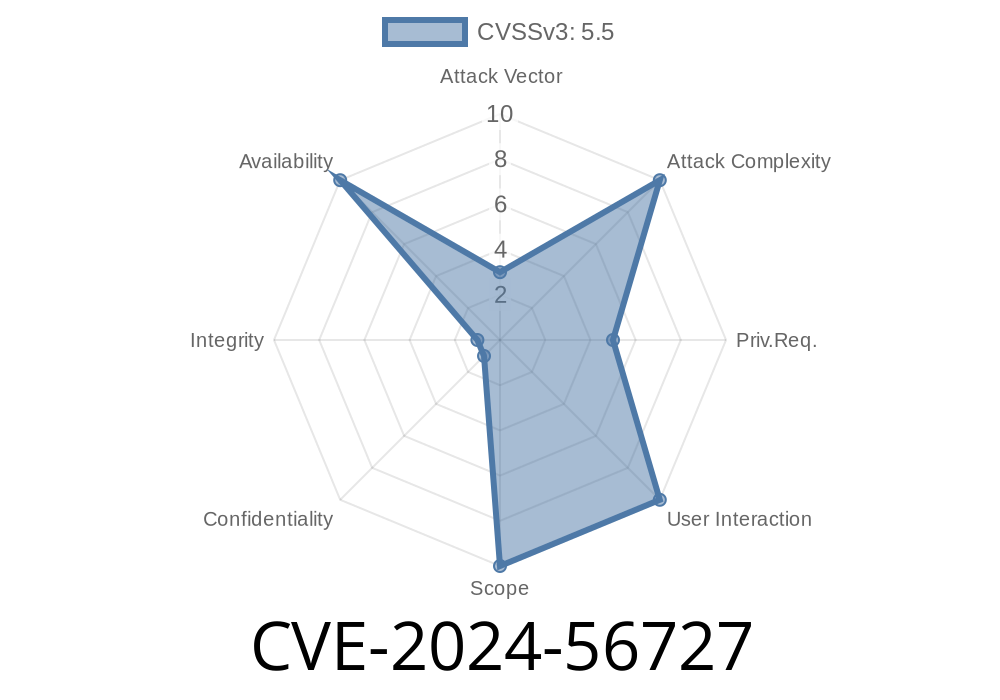In mid-2024, the Linux kernel team fixed a subtle but critical bug in the octeontx2-pf network driver. This bug, tracked as CVE-2024-56727, wasn’t flashy. But in the right (or wrong) conditions, it could mess with your networking gear and make troubleshooting a real pain.
Let’s break down what happened, why it matters, and see the real code change. You’ll also get pointers to upstream discussions and learn how someone could have exploited this logic slip.
The Vulnerability in Plain English
In Linux, the octeontx2-pf driver supports Marvell’s OCTEON TX2 network cards—powerful hardware for servers and cloud infrastructures. This driver often talks with its co-processor using *mailboxes*: basically, command-and-response messages.
The function otx2_mbox_get_rsp() is used to fetch a response from hardware. But old code in otx2_flows.c didn’t check if this function returned an *error pointer*. If things went wrong (malloc errors, timeouts, bad hardware), the code would blindly trust the response was good.
That’s like asking your friend if your food has peanuts, but then ignoring if she says “I don’t know.” Sometimes that works; but when it fails, it fails hard.
Here’s what the risky code used to look like (simplified)
// Inside otx2_flows.c
rsp = otx2_mbox_get_rsp(mbox, , otx2_mcam_flow_create, &rsp_size);
// No check for error here!
struct mcam_flow_rsp *flow_rsp = rsp;
flow->f_id = flow_rsp->flow_id;
If otx2_mbox_get_rsp() failed, rsp might be an error pointer (not real response data). That could cause kernel crashes, memory corruption, or weird networking failures.
The Secure Fix
In the patch, a smart developer added the check for error pointers using IS_ERR(), a classic Linux macro:
rsp = otx2_mbox_get_rsp(mbox, , otx2_mcam_flow_create, &rsp_size);
if (IS_ERR(rsp)) {
err = PTR_ERR(rsp);
goto destroy_flow;
}
Translation:
Exploit Scenario
An attacker on a system using this module could trigger this bug in a few ways (if they have sufficient permissions):
1. Resource Starvation: Force the allocation within otx2_mbox_get_rsp() to fail (by eating up memory) and then trigger flow creation, causing the function to hand back an error pointer.
2. Fault Injection / HW Glitching: If a local admin or user with device access injects faults into mailbox communication, they can force the driver onto the error path.
3. Malicious Userland Code: On a cloud server, a privilege user could craft traffic or ioctl calls that intentionally break the mailbox command, provoking kernel memory abuse or crashes.
In these cases, the previous code would dereference an error pointer, causing NULL pointer dereference or even arbitrary memory access. On production machines, this can mean network downtime, security instability, or denial of service.
Patch Upstream:
octeontx2-pf: handle otx2_mbox_get_rsp errors in otx2_flows.c
Mailing List Discussion:
CVE Details:
Who’s impacted?
Anyone running Linux on Marvell OCTEON TX2 network cards, especially in cloud, server, or storage fleet.
Conclusion
This is a classic case where a tiny detail—forgetting to check an error pointer—can lead to big consequences. The story of CVE-2024-56727 reminds us that, in kernel code, *safety checks save weekends*.
Pro tip: After every kernel upgrade, check your vendor’s security notes. Even if the change log only mentions a “minor pointer check.” Because sometimes, those are the ones that sleuth hackers love the most.
Timeline
Published on: 12/29/2024 12:15:06 UTC
Last modified on: 01/06/2025 17:09:19 UTC
